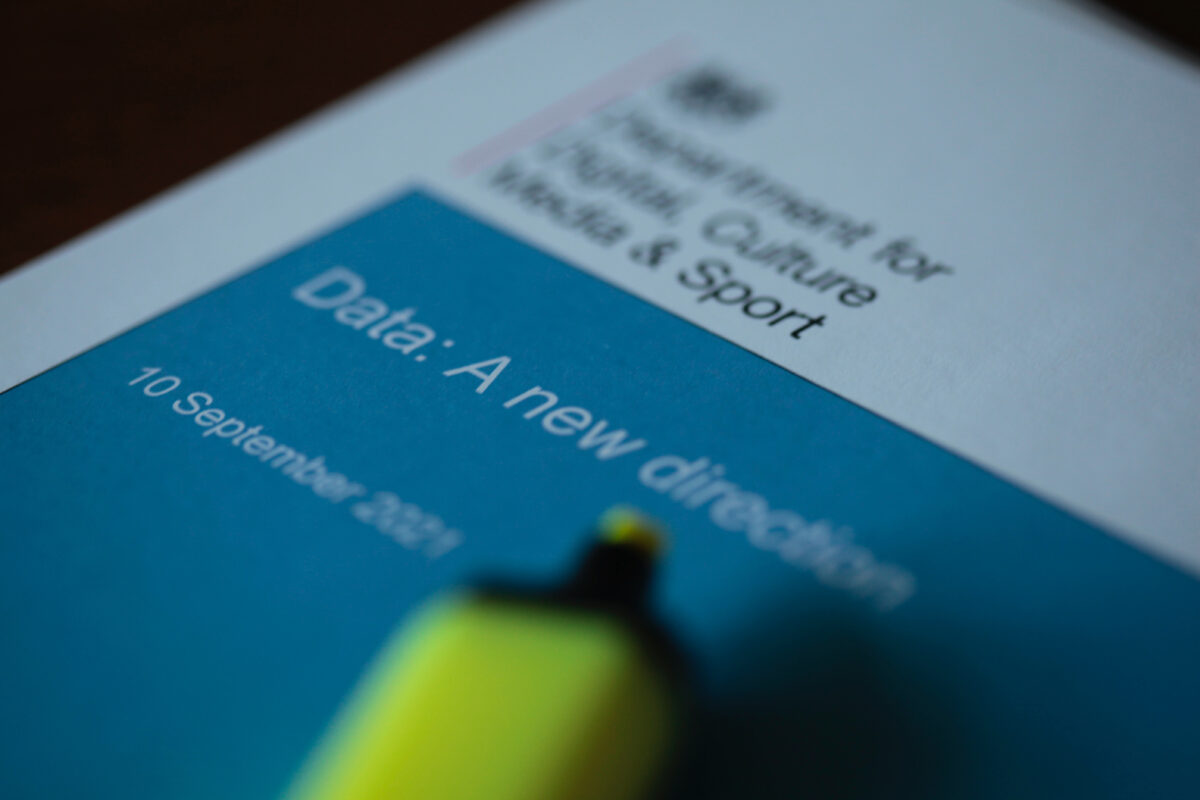In October, we started bringing together people who may be affected by the UK government’s data reforms proposed in the consultation Data: A New Direction – and that means everyone – to discuss the changes and formulate their own responses.
After our own public event, which 60 people registered for, we opened up the resources that we had developed for the session – and you can still find them below if you want to explore the proposed changes laid out by government, or understand what we did.
There’s also a video about ‘how to respond to a consultation‘ from our board member Linda Humphries, which could be a useful reference for making responses to things like this in the future.
So… what happened next?
Inspired by the event, The Legal Education Foundation instructed equality law experts Robin Allen QC and Dee Masters to analyse the potential for discrimination in the proposed reforms, under the Equality Act 2010.
You can find a summary, their recommendations for changes to the plan and the full review here, but they raised a concern that it conflates “outcome fairness” with “non-discrimination” in a manner that is “simply wrong in law”.
Since then, we hosted three more workshops on the consultation, on behalf of the Greater Manchester Combined Authority (GMCA) and with DCMS, to make sure more people could dig into the documentation. Two of these were focussed on core themes that arose within the document, while the third aimed to offer an accessible overview
The GMCA was also keen to understand the community’s concerns to help it formulate its own response to the consultation, which also took on contributions from the 10 boroughs of Greater Manchester, plus:
- Transport for Greater Manchester
- The Growth Company
- University of Manchester
- Just Algorithms Action Group
- Pankhurst Trust
- Things Network
- Wythenshawe Community Housing Group
- Local Government Association
- EPM
- Salford CVS
- Guinness Partnership
- TechUK
- Paper Frogs
On sending their response to DCMS, the lead signatories Alison Mckenzie-Folan Chief Executive of Wigan Council and Chair of the Greater Manchester Information Board, Dr Roger Prudham, Consultant Gastroenterologist and Clinical Director for Professional Standards at The Pennine Acute Hospitals NHS Trust and Deputy Chair of the Greater Manchester Information Board, and Phillipa Nazari, Assistant Director for Information Governance and Data Protection Officer at GMCA, said:
“We were keen to provide an inclusive Greater Manchester City Region response to the consultation, incorporating different perspectives and encouraging wider engagement alongside practitioner input.
“Greater Manchester as a City Region is collectively focused on how to achieve its aims and ambitions innovatively, achieve growth, tackle climate change and reform public services with people at the heart of what we do.
“This means collectively we are working to ensure the rights of data subjects and understand and mitigate any detrimental impact that the use of their personal data can have.”
And now, Open Data Manchester has become the first northern, civil-society representative to act a convenor of the DCMS National Data Strategy, which will include work on these reforms. We join:
- Ada Lovelace Institute
- Confederation of British Industry
- Centre for Data Innovation
- Centre for Data Ethics and Innovation
- Centre for Information Policy Leadership
- Data and Marketing Association
- Open Data Institute (ODI)
- Policy Connect
- Royal Society
- Wellcome Trust (supported by ODI)
- Which?
- Institute for Government
Julian Tait, CEO of Open Data Manchester, said:
“Data affects us all and it was clear that such a far-reaching consultation needed a community response. People from across Greater Manchester, and further, afield came together to discuss the consultation, helping the GMCA respond, while also helping other people form their responses too. It is vital that more voices are heard in data debates and we are pleased we are now a convenor for the government’s comprehensive National Data Strategy.”
The consultation closed on 19 November 2021 and the feedback is being analysed by the DCMS.

